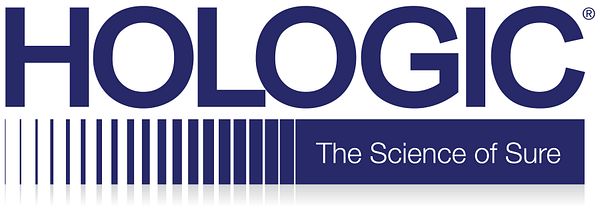Pressmeddelande -
CE-märkning för Aptima® CMV Quant assay
Cytomegalovirus (CMV) är en av flera patogener som utgör ett hot mot transplantationspatienter och andra med nedsatt immunförsvar. En exakt monitorering och kvantifiering av CMV är således av största vikt för handhavandet av dessa patienter.
Nu har Hologic erhållit CE-märkning för Aptima® CMV Quant assay, en molekylär analys för kvantifiering av cytomegalovirus (CMV) som är först ut när Hologic lanserar en serie nukleinsyreamplifieringstester (NAAT) för transplantationspatienter.
Aptima® CMV Quant assay analyserar plasma och helblodsprover med realtids-TMA-teknik (TMA = transkriptionsmedierad amplifiering) och körs på det helautomatiserade Panther®-systemet.
Hologic, Inc. (Nasdaq: HOLX) has received CE mark for its new Aptima® CMV Quant assay in Europe. This assay, which quantifies the viral load of human cytomegalovirus (CMV), is intended for use to aid in the diagnosis and management of solid-organ transplant patients and hematopoietic stem cell transplant patients. This in vitro nucleic acid amplification test (NAAT) uses real-time transcription-mediated amplification (TMA) technology on the fully automated Panther® system and can be used with human plasma and whole blood samples.
“Immunocompromised patients are vulnerable to a range of infections, with CMV a frequent complication, and healthcare providers need to quantify and monitor CMV accurately,” said Jan Verstreken, group president, International. “Our Aptima CMV Quant assay is the first in a new line of Hologic assays for transplant patients and demonstrates our commitment to our laboratory partners to expand our molecular diagnostics business into new segments.”
Human CMV is a common DNA virus that belongs to the herpes family. Its prevalence in the population ranges from 45 to 100% worldwide.1,2CMV infections are typically mild or asymptomatic in people with normal immune systems. However, in immunocompromised people such as transplant recipients, CMV is a common cause of morbidity and mortality. CMV, like other herpes viruses, may cause a lifelong latent infection that can sporadically reactivate. In transplant recipients, transfer of latent CMV in the graft or reactivation of latent CMV infection in the host may result in widespread viral replication and dissemination to multiple organs, which is often life-threatening.2
As higher viral loads generally correlate to an increased risk of CMV disease,3,4it is crucial that CMV levels are quantitated in transplant patients, in conjunction with monitoring clinical presentation and other laboratory markers. Recent guidelines recommend at least weekly monitoring of CMV viral load post-transplant to guide decisions about starting anti-CMV therapy as well as to monitor response to therapy.5,6,7Quantitative nucleic acid amplification testing is the preferred method as it is both rapid and sensitive.
For more information on the Aptima assays, visit www.hologic.com.
References
1 Bate SL, Dollard SC, Cannon MJ. Cytomegalovirus Seroprevalence in the United States: The National Health and Nutrition Examination Surveys, 1988-2004. Clinical Infectious Diseases 2010;50:531-540
2 Cannon MJ, Schmid DS, Hyde TB. Review of Cytomegalovirus Seroprevalence and Demographic Characteristics Associated with Infection. Reviews in Medical Virology 2010;20:202-13
3 Wills MR, Poole E, Lau B, Krishna B, Sinclair JH. The immunology of human cytomegalovirus latency: could latent infection be cleared by novel immunotherapeutic strategies Cell and Mol Immunol. 2015;12:128-38
4 Kotton CN, Kumar D, Caliendo AM, et al. The Third International Consensus Guidelines on the Management of Cytomegalovirus in Solid Organ Transplantation. Transplantation. 2018;102(6):900-931.
5 de la Cámara R. CMV in Hematopoietic Stem Cell Transplantation. Mediterranean Journal of Hematology and Infectious Diseases.2016; 20;8(1):e2016031.
6 Emery VC, Sabin CA, Cope AV, et al. Application of Viral-Load Kinetics to Identify Patients who Develop Cytomegalovirus Disease After Transplantation. Lancet. 2000; 10;355(9220):2032-6.
7 Humar A, Gregson D, Caliendo AM, et al. Clinical Utility of Quantitative Cytomegalovirus Viral Load Determination for Predicting Cytomegalovirus Disease in Liver Transplant Recipients. Transplantation. 1999; 15;68(9):1305-11.
8 Razonable RR, Hayden RT. Clinical Utility of Viral Load in Management of Cytomegalovirus Infection After Solid Organ Transplantation. Clinical Microbiology Reviews. 2013; 26(4):703-727.
SOURCE: Hologic, Inc.
Ämnen
- Hälsa, sjukvård, läkemedel
Kategorier
- cmv
- diagnostik
- cytomegalovirus
- molekylärt test
- transplantation
- aptima
- naat
Regioner
- Stockholm
Hologic, Inc. är en ledande utvecklare, tillverkare och leverantör av högkvalitativa diagnostikprodukter, medicinska avbildningssystem och kirurgiprodukter. Hologics kärnverksamhet fokuserar på diagnostik, brösthälsa, gynekologisk kirurgi och skeletthälsa. Ett stort teknologiskt kunnande och robusta forsknings- och utvecklingsprogram ligger till grund för Hologics devis: the Science of Sure.
För ytterligare information om Hologic, besök www.hologic.com
